Personal Development
Personal Development at Westwood, or ‘PD’ for short, is the subject through which the bulk of the statutory Relationships and Sex Education (RSE) and Health Education (2020) is taught. Full details of the statutory content is available from RSE and Health Statutory Guidance on the government website.
Westwood prioritises PD by enabling all students in Years 9 to 11 to receive two lessons each fortnight where awareness of holistic health (positive relationships, physical and sexual health and mental wellbeing) is nurtured. The core intent of the subject is ensuring our young people learn the knowledge and skills to make safe, informed and healthy choices as they progress through to adult life. Students also learn to recognise when an individual is at risk or may need help, and they will understand where to seek help. They should also grow to appreciate their roles and responsibilities with respect to both others and themselves. Additionally, they explore the value of exercise, the outdoors and involvement in hobbies and interests for their wellbeing and development. Students are encouraged to express their ideas and opinions in a safe, non-judgmental learning environment, whilst also developing and demonstrating mutual respect for each other.
The RSE themes explored through the PD curriculum encompass:
- Families
- Respectful relationships, including friendships
- Online and media
- Being safe
- Intimate and sexual relationships, including sexual health
Students also learn about the Law with regard to:
- Marriage
- Consent, including the age of consent
- Violence against women and girls
- Online behaviours, including image and information sharing (including sexting, youth-produced sexual imagery, nudes, etc.)
- Pornography
- Abortion
- Sexuality
- Gender identity
- Substance misuse
- Violence and exploitation by gangs
- Extremism and radicalisation
- Criminal exploitation, for example, through gang involvement or ‘county lines’ drugs operations
- Hate crime
- Female genital mutilation (FGM)
With regard to Health Education, the themes covered in PD are:
- Mental wellbeing
- Internet safety and harms
- Physical health and fitness
- Healthy eating
- Drugs, alcohol and tobacco
- Health and prevention
- Basic first aid
- Changing adolescent body
LGBTQ+
As students grow to understand themselves, PD plays a vital role in promoting inclusivity, equality and respect and is a forum to explore diversity in relationships. When teaching about LGBTQ+, content is integrated into the resources used rather than taught as stand-alone lessons.
Resources
The resources used to deliver content allow for the concepts explored to be embedded, often over several lessons. The majority of the resources are published by the PHSE Association, Quality Marked by the Association as high-quality resources, or recommended by it, such as those from PHE. Such resources are age-appropriate, developed by specialists and include teacher guidance on good practice when delivering content. The resources selected prompt classroom discussion and reflection, which also enables our young people to express their ideas and opinions in a non-judgmental environment and to show respect for each other and for differing opinions.
Learning beyond PD lessons
There are further opportunities for students to learn about the RSE and Health themes explored through PD. These include, but are not limited to:
Curricula in other subjects: PE and Science
Diversity Week
Enrichment activities
NCS (Year 11)
3 Year Curriculum Map
The themes explored across KS3-KS4 are shown in the table below. The colour shows the aspect of RSE and Health being explored, whether related to physical health, mental wellbeing, etc. However, it is recognised that these themes interact, e.g. financial wellbeing affects mental health; healthy sleep and good nutrition are important for supporting mental wellbeing; mental ill-health impacts capability to assess risk and make decisions; and positive romantic relationships should support healthy attitudes to intimacy and sex.
Year 9
- Holistic Health
- Commitment (relationships and beyond)
- Preventing Involvement in Serious Crime
- Forming positive relationships
- Gangs: Managing Risks and staying safe
- Handling disclosures
- Puberty
- Menstruation/Periods
- Health: from here to where?
- Influences on decision making; taking responsibility for our health decisions
- Smoking, Alcohol and Drugs
- Mental Health: attitudes to mental health, promoting emotional well-being, healthy and unhealthy coping strategies
- Relationships and Sex Education: starting out, consent, STIs and contraceptions, Relationships
- Pregnancy
- Bullying and Cyber bullying
- Online Safety adn Sexting
- Child Secual Exploitation
Year 10
- Mental Health: New challenges
- Reframing Negative Thinking, Recognising Mental ill-health and Promoting Wellbeing
- Sleep
- Food choices, excercise and balanced lifestyles
- Food labelling and packaging
- Cancer: What is it? Melanoma
- Tattooing and Body Piercing
- HIV and AIDS
- Bereavement
- Relationships Abust, consent and sharing sexual images
- Online pornography
- Online Blackmail
- Relationship Safety (stalking)
- Body Image and Self Esteem
- Knife-Crime/Knife Free: positive choices and role models
- Inclusion, belonging and addressing extremism
- Violence against women and girls: FGM and forced marriage
Year 11
- Physical and Mental Wellebing
- Testicular cancer
- Breast cancer
- Family Life: Long term commitment, marriage, parenting
- Fertility and pregnancy choicses
- Exam stress
- Economic wellbing/Finance
- Gambling
- Exam preparation (including study skills) and independent study.


